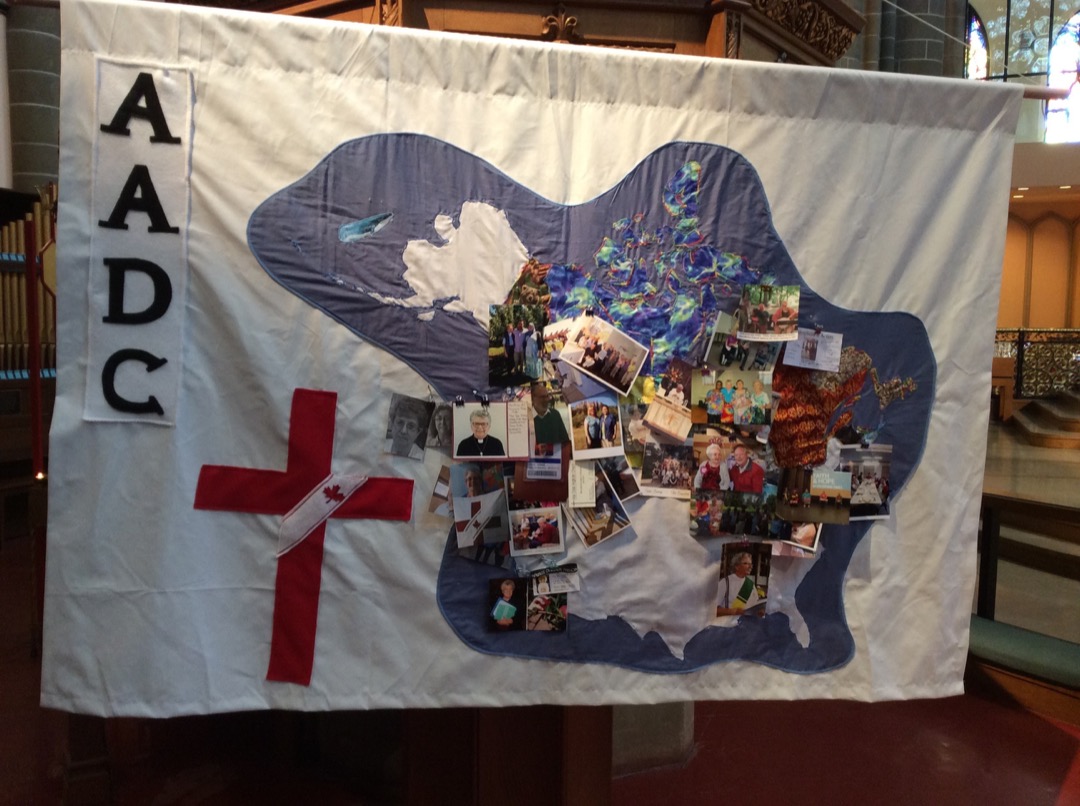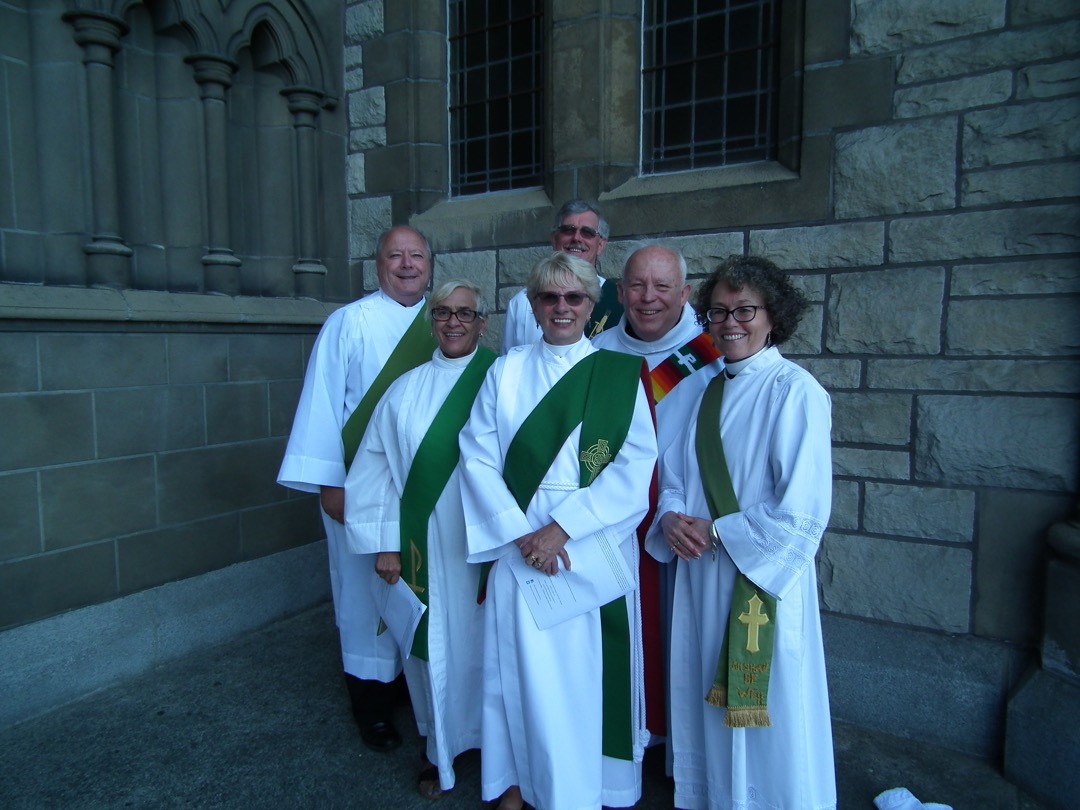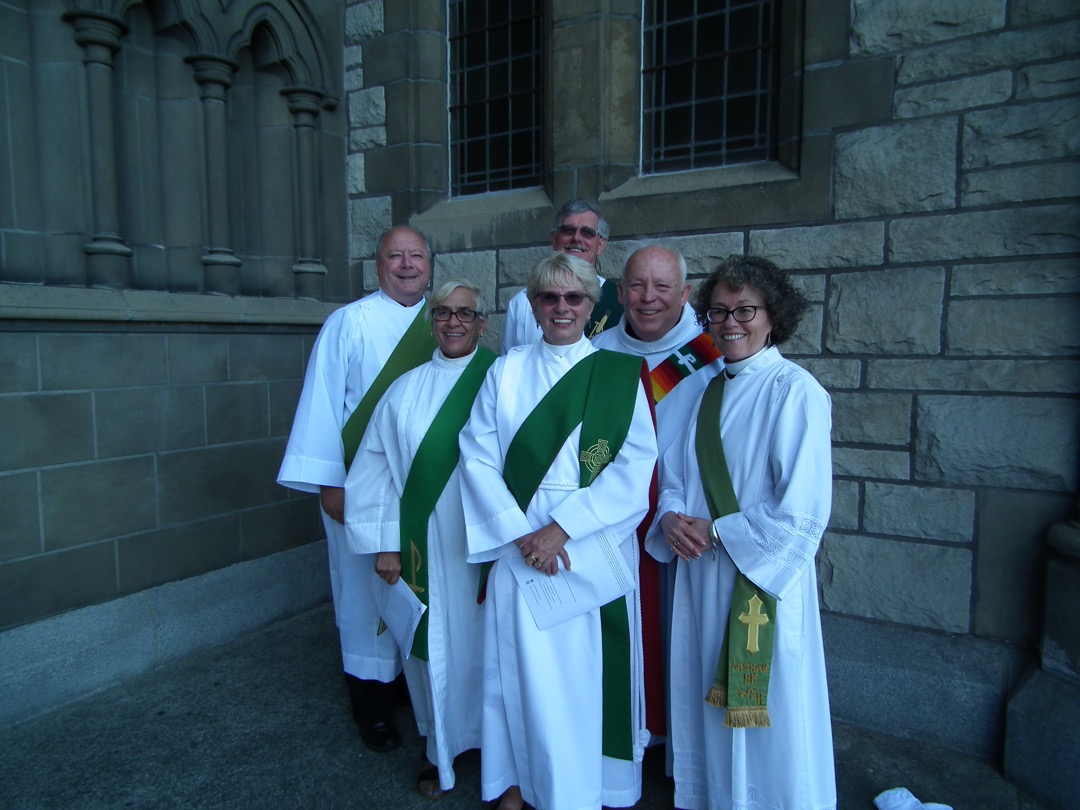by Nina Page
What do you call a group of deacons? A “disturbance” of deacons.
In July, seventy deacons from across Canada met for their triennual conference in Victoria, BC. Six delegates attended from Niagara Diocese.
Deacons brought photos illustrating their diaconal roles in the community. We placed them on a map of Canada hanging in Christ Church Cathedral Victoria.

Federal Green Party leader Elizabeth May began the conference Thursday evening. In her keynote address she set the tone with a reflection based upon Leonard Cohen’s Anthem. She challenged the church to consider the tension between the cracks and brokenness of the human condition and God’s perfect creation, and how we might reconcile the two.
Two themes dominated the conference. The first was the plight of marginalized peoples and their struggles with poverty, homelessness, addiction, mental health and food security. The second was reconciliation, including some overlap which brought the experience and concerns of First Nations people to the fore.
Friday morning featured panelists with first-hand knowledge of poverty and homelessness. It was dismaying to discover the Indian Act still requires a divorced woman to ask permission from our government to travel to her parents’ home. Bill C-3 provides a process allowing such women to apply for reinstatement to their “lost” Indian status; however, it is complicated and expensive. Reinstatement, which opens the door to better health and education services for women and their children, is often out of reach for many who are already financially marginalized due to their lack of “status”.
We heard about the roles of churches, especially deacons in the churches, in supporting “The Tent City” demonstrations (2015-2016). The panelists also described their experiences with residential schools, drug addiction, poverty and sex work.
Things I learned from the session: How can we ask someone to prove they are hungry and still give them the dignity of being treated as a human being? We need to stop telling people to quit drugs or alcohol before we help them. Justice is not charity; there can be no justice if there is no peace. There is no homelessness, just “houselessness”.
The Iona Report on the Diaconate in the Anglican Church was discussed in the afternoon. There is great diversity from diocese to diocese regarding deacons, including continuing education funding and honorariums to cover deacon’s out-of-pocket expenses.
Later at the Songhees Wellness Centre, Nanwakolas Council’s former president Dallas Smith said we need to accept each other; Indigenous and non-Indigenous people should move forward together. He encouraged us to find out whose land our church is built upon—is it former native land?—and our need to contact former owners to re-build trust and respect. Dallas urged us to stand against injustices and seek a repeal of the Indian Act.
On Saturday morning we listened to British Columbia’s Bishop Logan McMenamie describe his 470-kilometre journey from Alert Bay to Victoria. At each stop, he asked elders of local First Nations for permission to re-enter the land.

During the Saturday afternoon diaconal ministry market place, I was one of several people chosen to outline our ministries. I focused on my work with palliative and bereaved people in the community.
Four deacons on Sunday morning described their work and what it meant to them to be deacons in the world.
The closing worship highlighted the deacon’s role in the Eucharistic service and included a hymn by Herbert O’Driscoll, written especially for deacons. I participated in the dramatic reading of the Gospel.
With one voice 70 deacons gave the dismissal— “To proclaim the power of Christ to unite and heal division. Alleluia!”
For more information visit www.anglicandeacons.ca or the Association of Anglican Deacons in Canada Facebook page.
The Reverend Deacon Nina Page ministers at Grace Church Milton.


Preaching as Spiritual Discipline: A Modern Challenge